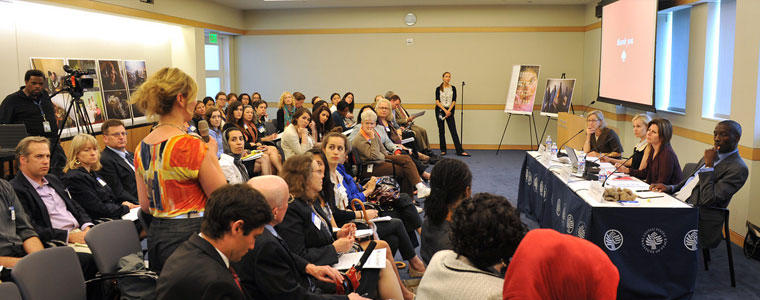Innovative Economic Partnerships with Women in Post-Conflict Transition
USIP’s Center for Gender and Peacebuilding, in collaboration with Kate Spade New York and Women for Women International, convened experts to explore the impact of private business and civil society partnerships on women's empowerment in the post-conflict contexts of Afghanistan, Bosnia and Rwanda.

USIP’s Center for Gender and Peacebuilding, in collaboration with Kate Spade New York and Women for Women International, convened experts to explore the impact of private business and civil society partnerships on women's empowerment in the post-conflict contexts of Afghanistan, Bosnia and Rwanda.
Speakers
- Sydney Price
Senior Vice President of Global Merchandising, Kate Spade New York - Karen Sherman
Executive Director for Global Programs, Women for Women International (WfWI) - Raymond Gilpin, Discussant
Director, Center for Sustainable Economies, U.S. Institute of Peace - Linda Jamison, Welcome
Acting Executive Vice President for External Affairs, U.S. Institute of Peace - Kathleen Kuehnast, Moderator
Director, Center for Gender and Peacebuilding, U.S. Institute of Peace
Explore Further
- Read a complete list of speaker bios for "Innovative Economic Partnerships with Women in Post-Conflict Transition"
- Learn more about USIP's Center for Gender and Peacebuilding
- Learn more about USIP's Center for Sustainable Economies
- Read how Women for Women International and Kate Spade New York have empowered women through the promotion of micro-enterprises
- Learn more about "Hand in Hand"
Related Academy Courses
- Pilot: Gender and Peacebuilding
- Strengthening Capacity in a Reform Environment: For Mentors and Advisers
- Pilot: Peacebuilding in Tribal Muslim Societies



